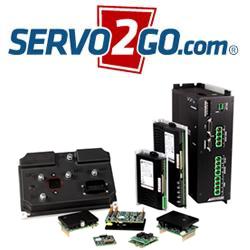3D Printing for Auto Parts Prototyping: Elasto Proxy Announces Case Study
Elasto Proxy, supplier of specialty seals and custom insulation, announces case study about how 3D printing supports mold making, prototyping, and low-volume production of rubber auto parts. Custom fabricator used 3D printed part to make molds and provide prototypes to U.S.-based maker of electric cars.
Boisbriand, Quebec, Canada February 18, 2014
Electric vehicles aren't just for city streets and highways. Smaller, golf cart-like models are used in gated communities for short trips to a neighbor's house or the grocery store. The electric vehicle industry isn't as large as the global automotive industry, of course, but green car companies still need to strengthen their supply chains. That's true for production runs of auto parts as well as prototypes.
Recently, a U.S.-based maker of electric cars asked Elasto Proxy to mold small quantities of rubber auto parts for two designs. The cost of tooling for the larger part was especially expensive at $35,000 per mold. The automaker asked for a fast but cost-effective way to produce prototype parts, and Elasto Proxy delivered a solution on a dime.
3D Printed Parts
3D printing, or additive manufacturing, is a technology that's been described as the starting point for a new Industrial Revolution. Recent advances in 3D printers are impressive, but their utility depends upon how well they work with software applications such as Solid Edge, a three-dimensional (3D) tool for solid modeling. The ability of a 3D printer to produce rubber parts with the right characteristics is also critical.
To reduce mold-making costs for the electric vehicle customer, Elasto Proxy listened to all of the car company's needs before offering a solution. As the carmaker explained, the purpose of producing the larger, more complex parts was to validate their shape and texture. That's when Elasto Proxy, a custom fabricator with expertise in technical design, suggested a solution that cost just $1500 to make, a 95% savings.
Custom Auto Parts for Testing
To create the solution, Elasto Proxy teamed with an expert in 3D printing services. The partner used a 3D printer to produce an exact replica of the prototype part. Instead of making this part out of EPDM rubber, however, our partner used PVC, a hard plastic. Because 3D printing adds materials layer-by-layer, a 3D printer cannot produce a rubber part with sufficient shape memory.
Using the 3D-printed part, Elasto Proxy made a mold which allowed for the creation of a prototype needed by the carmaker suitable for testing. However, this time the part was made out of a softer rubbery material, similar to EPDM. The hard plastic prototype would have been useless in testing as it does not have the same characteristics as EPDM.
The prototype's material properties were similar enough for testing purposes. For the customer, validating the part's design is critical, especially before investing $35,000 on a mold for production runs. Creating a "test mold" for that amount isn't cost-effective, especially since any changes between prototyping and production would require creating a new mold.
How Can We Help You?
For over 20 years, Elasto Proxy has supplied high-quality rubber parts to a wide variety of partners, including Tier 1 and Tier 2 suppliers to the automotive industry. By listening to all of your requirements and analyzing all of your needs, our solutions providers find innovative solutions to sealing challenges, such as creating prototypes that can be produced tested quickly and at a fraction of the cost of other methods.
Featured Product

High Performance Servo Drives for localized and distributed control applications from Servo2Go.com
Engineered to drive brushless and brush servomotors in torque, velocity or position mode, Servo2Go.com offers a broad selection of servo drives in a wide range of input voltages and output power levels.
